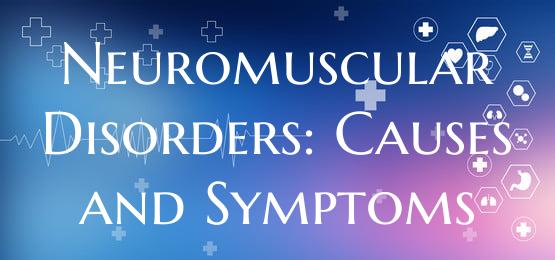
Neuromuscular Disorders: Causes and Symptoms
Neuromuscular disorders affect the nerves that control voluntary muscles and the communication between the nerves and muscles. These disorders can arise due to various causes and manifest in a range of symptoms that can significantly impact an individual's physical function and quality of life.
Causes of Neuromuscular Disorders:
1. Genetic Factors: Many neuromuscular disorders are inherited, meaning they are caused by genetic mutations passed down from parents to their children. Examples include muscular dystrophy, spinal muscular atrophy, and Charcot-Marie-Tooth disease.
2. Autoimmune Disorders: Conditions such as myasthenia gravis and Guillain-Barré syndrome are caused by the immune system mistakenly attacking the neuromuscular system.
3. Neurological Conditions: Diseases that affect the nervous system, such as multiple sclerosis and amyotrophic lateral sclerosis (ALS), can also lead to neuromuscular dysfunction.
4. Metabolic Disorders: Certain metabolic conditions can disrupt the normal functioning of muscles and nerves, resulting in neuromuscular symptoms. Examples include mitochondrial myopathies and Pompe disease.
5. Trauma or Injury: Physical trauma, such as spinal cord injuries or nerve damage from accidents, can cause neuromuscular problems.
Symptoms of Neuromuscular Disorders:
1. Muscle Weakness: One of the hallmark symptoms of neuromuscular disorders is muscle weakness, which can affect specific muscles or be more generalized.
2. Muscle Wasting: Over time, some neuromuscular disorders can lead to muscle atrophy or wasting, causing a decrease in muscle mass and strength.
3. Fatigue: Individuals with neuromuscular disorders often experience fatigue, even with minimal physical exertion, due to the inefficiency of the neuromuscular system.
4. Pain and Cramping: Muscle pain, cramps, and spasms are common symptoms of neuromuscular disorders, resulting from muscle imbalances and dysfunction.
5. Coordination Problems: Some neuromuscular disorders can affect coordination and balance, leading to difficulties with movements such as walking, reaching, or grasping objects.
6. Respiratory Issues: In severe cases, neuromuscular disorders can impact the muscles involved in breathing, leading to respiratory problems and the need for ventilatory support.
It is essential for individuals experiencing symptoms of a neuromuscular disorder to seek medical evaluation and diagnosis promptly. Early detection and appropriate management can help improve quality of life and potentially slow the progression of the disorder. Treatment options may include physical therapy, medications, assistive devices, and in some cases, surgery.